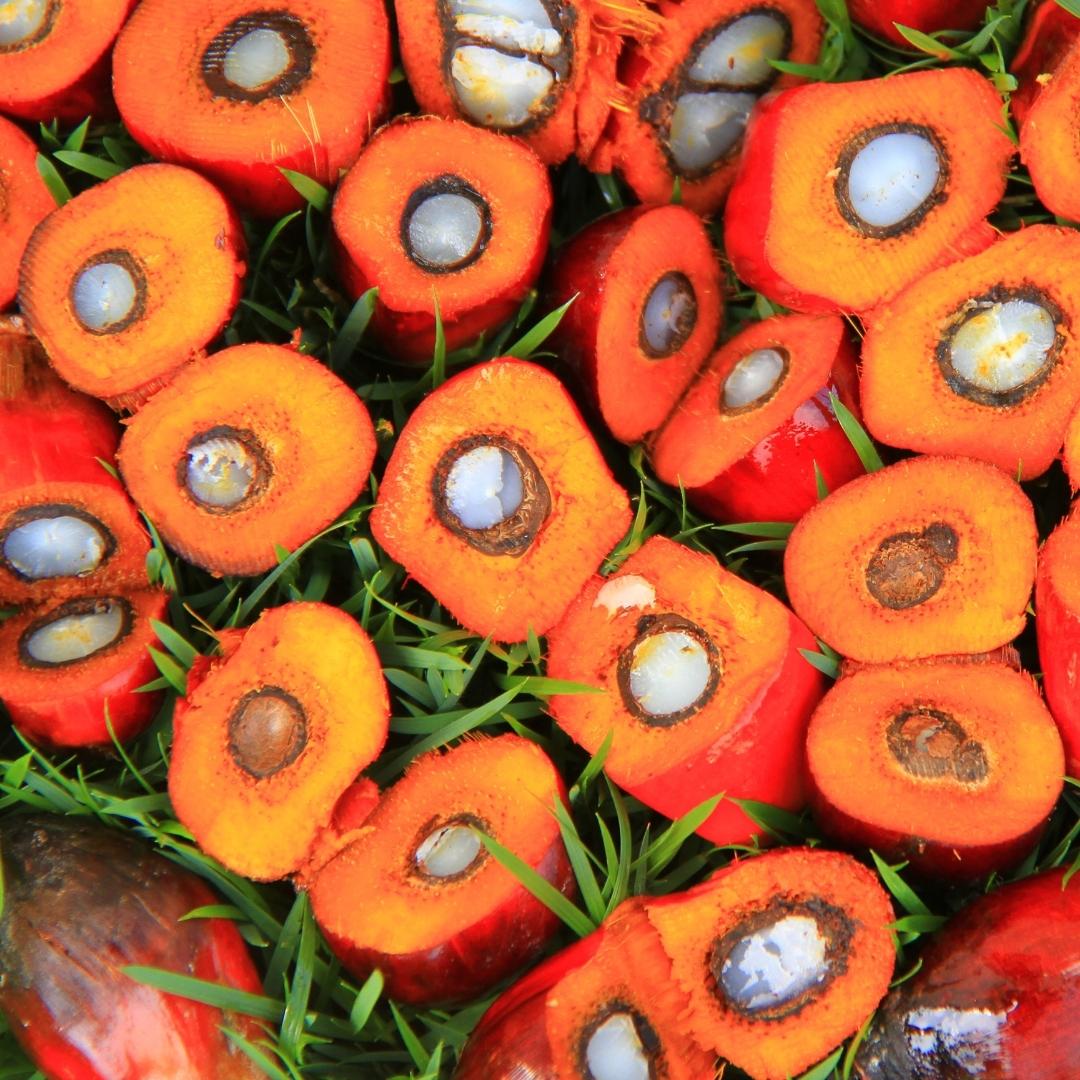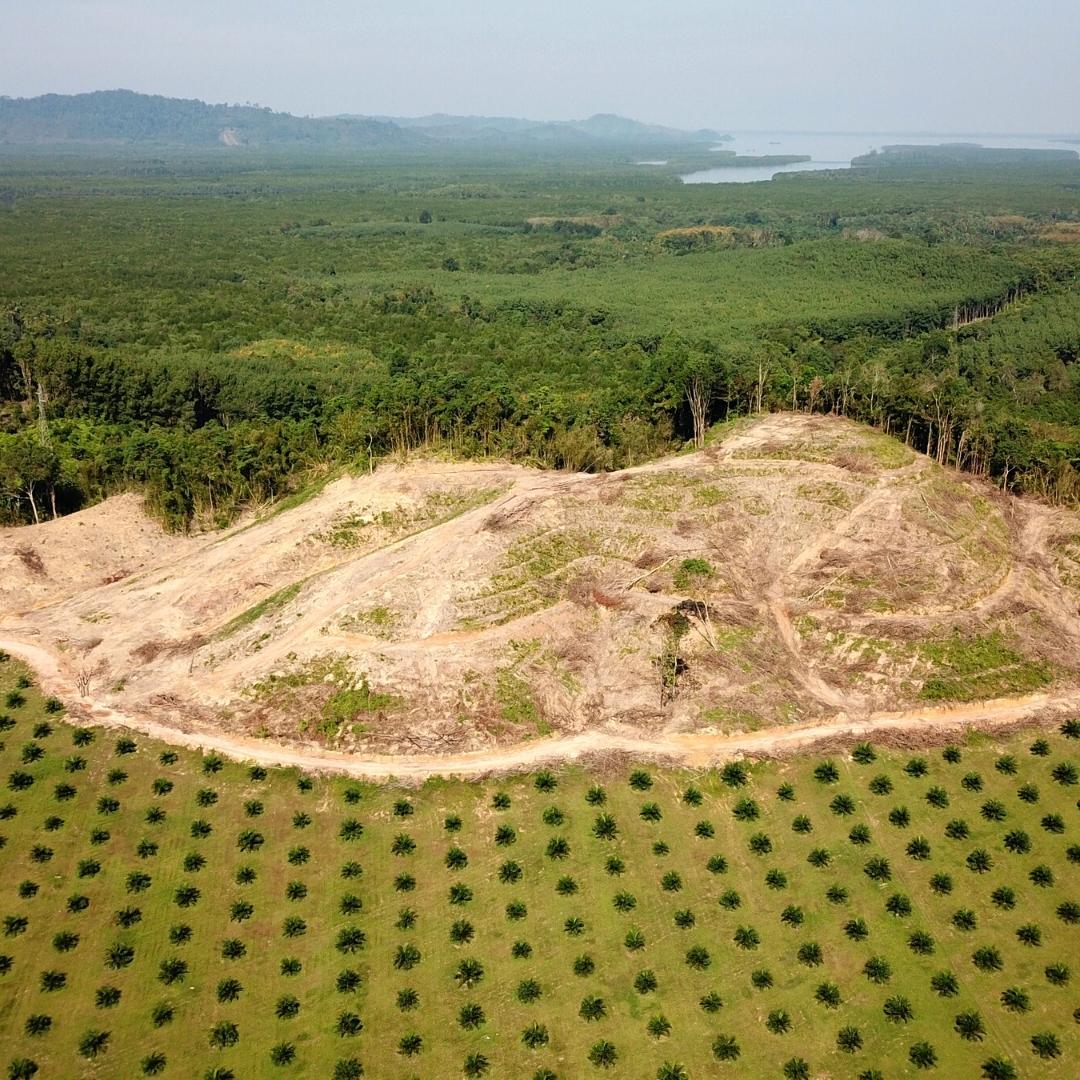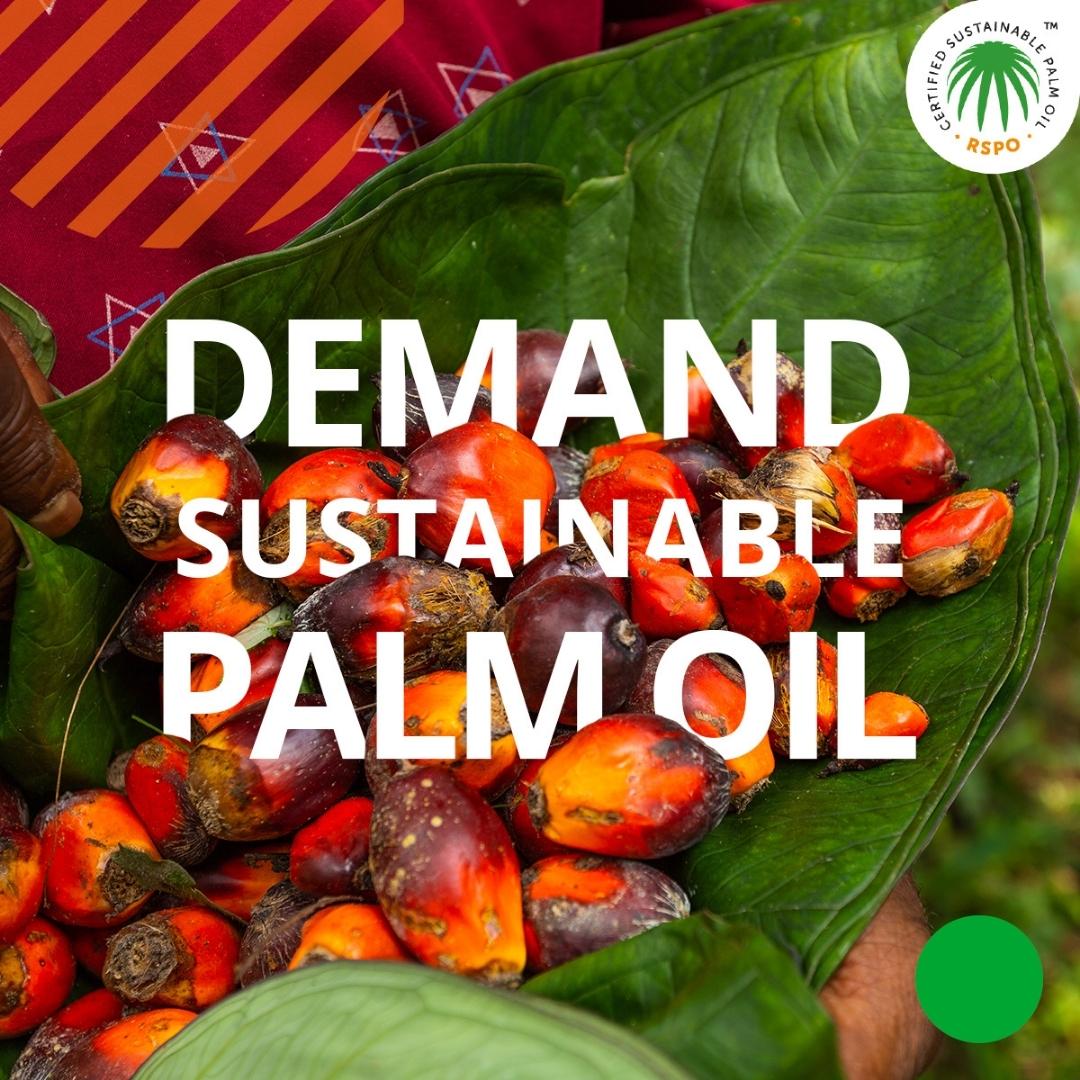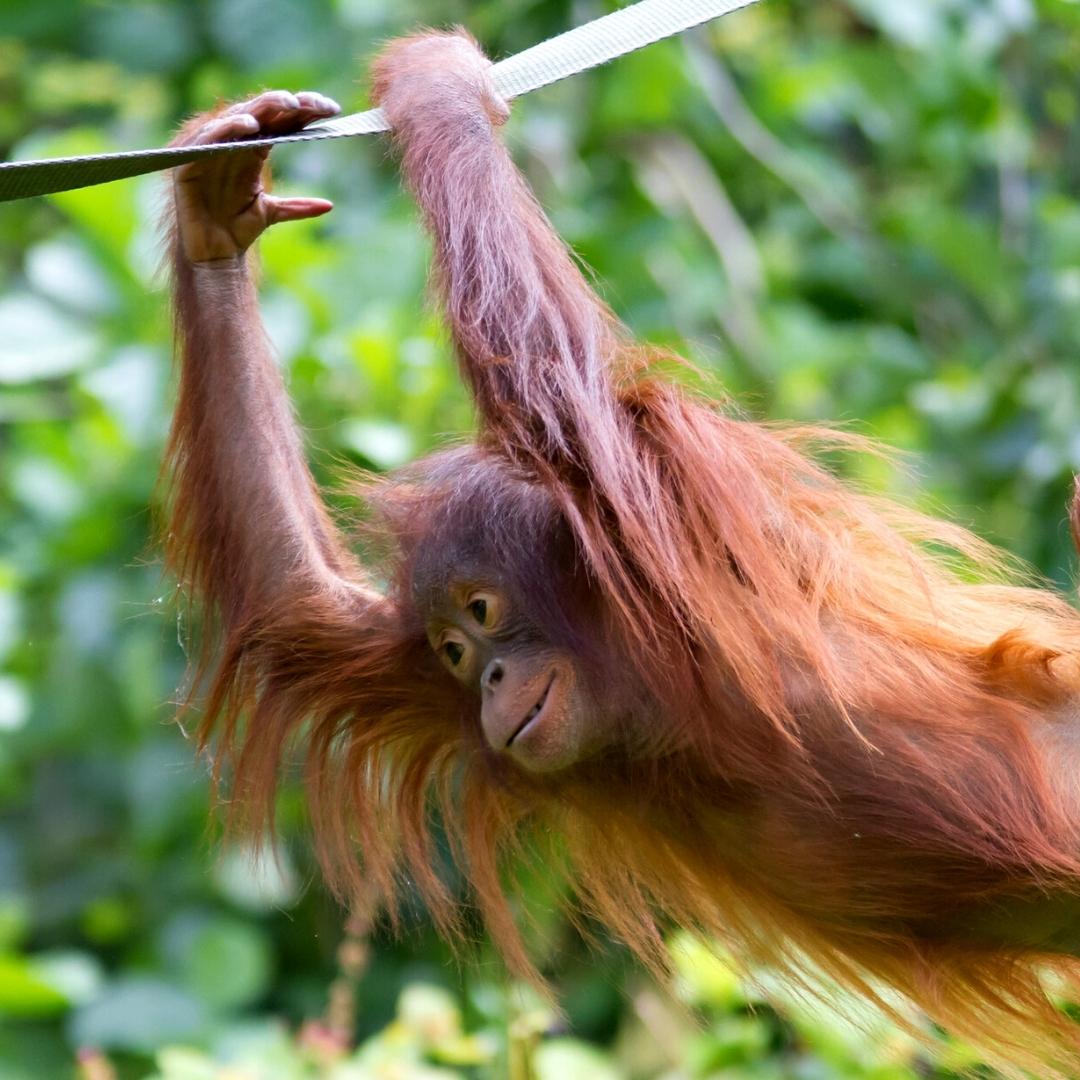What is palm oil? Is it sustainable? Should we boycott palm oil products? Here at Flora & Fauna — as a general rule — we don't like palm oil and seek to avoid it. However, the issue isn’t black and white! Whilst the majority of our products are Palm Oil Free, there are a few products that contain sustainably-sourced palm oil or palm oil derivatives. Keep on reading to find out why!


Image: Taffpix / Canva
What Is Palm Oil & What Is It Used For?
We always hear about why individuals and companies choose to avoid palm oil, but what actually is it? Palm oil is a type of vegetable oil made from the fruit of the African oil palm tree, Elaeis Guineensis. This popular oil is relatively cheap to produce, which is why it accounts for 35% of the world’s vegetable oil production.
It’s estimated that 85% of all palm oil comes from Malaysia and Indonesia. The crop itself takes between 3-4 years to mature, which can yield hundreds of individual fruits. Palm oil is retrieved both from the flesh of the fruit and the kernel within.
This versatile oil is used in around 50% of the products that we use everyday, including cleaning products, shampoos, cosmetics, candles, and even toothpaste. Predominantly, though, palm oil is found in foods like margarine, chips, cookies, chocolate, biscuits, and ice cream.


Image: Rich Carey / Canva
What’s The Problem With Palm Oil?
Even though palm oil requires far less land to grow than rapeseed oil, sunflower oil, and soybean oil — the cultivation of palm oil is driving deforestation in some of the world’s most biodiverse forests. When existing forests are cleared to make way for palm oil plantations, they’re often burned, which releases huge amounts of harmful smoke and carbon dioxide.
Palm oil products are often boycotted due to the impact on local wildlife. Around 1,000-5,000 orangutans are killed every year because of palm oil development, and in the last decade, the orangutan population has dropped by 50% while the land used for palm oil plantations has doubled.
As their natural habitat diminishes, orangutans become more vulnerable to poachers. It isn’t just orangutans, either! Palm oil cultivation is one of the leading reasons why Asian elephants, Sumatran rhinos, and Sumatran tigers have lost their habitats.


Image: RSPO
Why Does Flora & Fauna Stock Palm Oil Products?
You might be wondering why Flora & Fauna isn’t 100% palm oil free. Palm oil itself isn't unsustainable or bad for the planet. However, due to high demand, the unsustainable cultivation of the crop has resulted in deforestation and habitat loss.
Whilst the majority of our range is Palm Oil Free, there are some brands that may use palm oil or palm oil derivatives. We strive to ensure that these brands are sourcing Roundtable On Sustainable Palm Oil (RSPO) Certified palm oil.
RSPO is a not-for-profit that unites stakeholders from the 7 sectors of the palm oil industry to develop strict social and environmental standards in palm oil-producing regions. For palm oil growers and other stakeholders throughout the supply chain, the RSPO Certification is renewed every five years and assessed annually to ensure continued compliance.


Image: RSPO
Should We Choose Palm Oil Free Products?
Palm oil falls under many different names, it might even just be called ‘vegetable oil’ or ‘vegetable glycerin’ on some labels. So, it’s difficult to avoid! The International Orangutan Foundation recommends that we reduce our consumption of palm oil where possible, or choose RSPO certified palm oil.
Choosing RSPO certified palm oil means that palm oil can continue to play a key role in food security, economic development, and food supply chains. Even though ‘sustainable’ palm oil production isn’t perfect, it’s a big step.
Whilst we strive to stock Palm Oil Free products, there are some brands that source their RSPO certified palm oil responsibly. Dr Bronner’s, for example, sources their palm oil from Ghana — it's from a family plantation that is well-managed and supports the community! The palm oil crop didn’t replace former orangutan habitats, either.
So, why are we talking about palm oil? Well, International Orangutan Day is on August 19th! The aim of the campaign is to help encourage the public to take action in preserving this amazing species. This is why we love talking about the amazing work of non-profits like Borneo Orangutan Survival (BOS) Foundation on our blog. Celebrate International Orangutan Day on August 19th by supporting their amazing rehabilitation initiatives!
If you haven't noticed, we’re crazy about wildlife here at Flora & Fauna! If you love hearing interesting stories about unique animals, check out the blogs below for more.
BOS Australia Is Rehabilitating & Releasing Orangutans Into The Forests Of Borneo
One-Of-A-Kind Rare Albino Tortoise Born In Switzerland!
California Condors Return To Redwood National Park After 100-Year Absence



